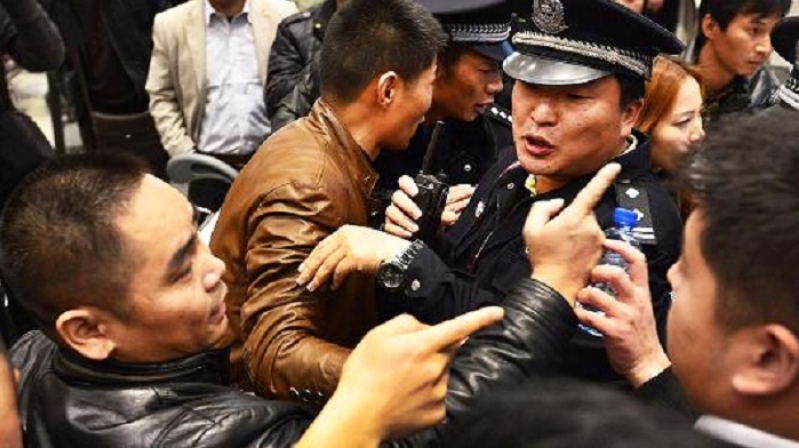
Two Christian mental health advocates who established faith-based addiction treatment centers have disappeared into police custody in China's southern Guangdong province, raising fears that they may be at risk of torture.
According to China Aid, an organization committed to promoting religious freedom and rule of law in China, officials from the public security and religious affairs bureaus last week surrounded Gospel Drug Treatment Church. Then, authorities confiscated its computer and religious materials, banned it from holding religious services and dispersed Christians gathered there.
Authorities also detained the church's leaders, Lin Haixin and his wife, who are originally from Hong Kong. Over a week later, their whereabouts remain unknown, and some Christians speculate that they were taken away for holding so-called "illegal religious activities" without registering with the government.
According to China Aid, the church, established in 2013, specializes in helping people with addictions, mental health problems, gambling habits, alcoholism, etc., free of charge through the use of Christian rehabilitation centers in Zhaoqing, Guangdong, and Lijiang, Yunnan.
Many church members were former patients who reported vast improvements after their treatment.
Last year, the religious affairs bureau issued an administrative penalty notice that accused Lin of using the guise of a pastor to conduct religious activities and warned the church to stop holding these events.
Refusing to back down, Lin wrote a defense to the religious affairs bureau and explained that he simply wanted to help those suffering from addictions and psychological disorders. Nevertheless, authorities detained him a year later.
"I said, as a person with experience, I was helping people who used to do drugs and who have psychological and mental issues to live a normal life," Lin told a China Aid reporter on the day he received the penalty.
At the time, Lin said he was unsure of how to proceed: "I need to wait to see if they will take any other actions before I make a decision. We were only reading the Bible, praying and singing a couple of hymns. We were really not holding any religious activities."
Christians in China have seen an uptick in persecution since the Xi administration came into power three years ago. An unprecedented number of church leaders have been imprisoned, sent to mental institutions, beaten and tortured. Thousands of crosses have also been forcibly removed from over 1,800 churches since 2014, and a number of churches have been completely demolished.
Last year, Xi warned that religions must be independent from foreign influence and said that the Communist party's religious work should be about winning over the hearts and minds of the public.
Thus, in an attempt to strengthen the Communist Party's control over society and combat foreign influences it considers to be a threat, China's cabinet, the State Council released a new set of rules aimed at eliminating unofficial Christian worship in unregistered "house churches," and "separatists" among Tibetans and Muslim Uyghurs.
The new regulations, enacted October 7th, include bans on preaching or running religious events in schools, and on "providing religious services online." Groups are also prohibited from "organizing citizens to attend religious training, conferences and activities overseas" and parents and guardians in Xinjiang who encourage or force their children into religious activities will be reported to the police.







